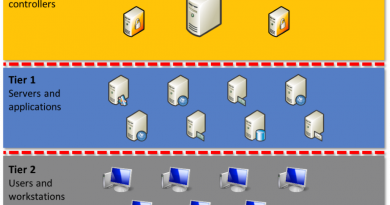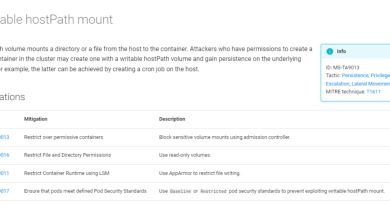Microsoft recognized as a Leader in UEM Software 2022 IDC MarketScape reports
Competition for talent has increased pressure to lead in the digital space, and business decisions now weigh user experience for employees heavily among costs and benefits. Workers insist on experiences that mirror their personal experiences, often on their own devices. As enterprise computing has expanded beyond the cubicle, the need to manage the ensuing explosion of complexity, especially when it comes to device security, has raised the bar for technology and information business decision-makers.
Microsoft has heard consistently that meeting these expanding needs with limited resources is job one. As new solutions seem to emerge as rapidly as the problem itself expands, providing a consistent, proven, centralized portal for endpoint management is how Microsoft aims to be the partner of choice in this space.
The scale of Microsoft—and our investments in endpoint management and endpoint security—affords our customers peace of mind that our solutions will continue to evolve alongside the demands and threats they face. We deliver advanced end-to-end cross-cloud, cross-platform security solutions, which integrate more than 50 different categories across security, compliance, identity, device management, and privacy, informed by more than 24 trillion threat signals we see each day. Proof of customers’ trust and peace of mind: the Microsoft Security business grew more than 45 percent year-over-year, totaling USD15 billion of annual revenue.1

This scale also allows Microsoft to bring a unified endpoint management solution that is tailored for customers’ challenges, especially the transformation to cloud management. Microsoft is recognized as a Leader in the Unified Endpoint Management Software 2022 Vendor Assessment IDC MarketScape report, including Ruggedized/Internet of Things Device Deployments and Small and Midsize Businesses. Microsoft Endpoint Manager is an integrated solution that simplifies management across multiple operating systems, cloud, on-premises, mobile, desktop, and virtualized endpoints.
This quote from the report may be of special interest to customers trying to do more with less:
“Integration is a key aspect of the Microsoft Endpoint Manager offering, and the product ties into a wide range of other tools from the vendor, including Office 365 apps, Teams, and OneDrive as well as Microsoft security products including Microsoft Defender for Endpoint (endpoint security) and Microsoft Sentinel (security information and event management).”
Managing more platforms
In short, IT administrators get more done in one place, with simplified management of multiple operating systems, cloud, on-premises, mobile, desktop, and virtualized endpoints. The IDC MarketScape report calls out the topic of enterprise management for macOS endpoints:
“[Microsoft Endpoint Manager] includes the ability to apply granular policies to Mac software distribution and deployments, broader support for macOS device configuration profiles, and user-based policy enforcement customization.”
In 2022, we will further expand across platforms by releasing enhanced support for devices running Android Open Source Project (AOSP), such as Oculus virtual reality (VR) headsets, as well as enable conditional access policies and device settings for Linux desktops. This way, IT can protect data on any devices by securing user apps; configuring, securing, monitoring, and updating apps remotely; and reducing risks with the combination of identity-based management and Microsoft Security.
User-focused experiences
We hear from customers that powerful software is great, but a frictionless experience is better. We try to bring this learning into our product development and continue working to improve not just what control IT admins have over endpoints, but also how they interact with them. How can data be turned into insights? How does portfolio visibility contribute to security?
We understand, too, that users are vested stakeholders in the process, and their satisfaction often determines whether IT can notch up a win or not. Access policies that are too strict can frustrate users or lead to insecure workarounds and require a balance of security and usability. We know that the line between home and work is blurred—so too is the line between business and personal devices—we try to improve on the ways we can help users do their work where and how they want.
IDC MarketScape report also recognizes our focus on endpoint analytics that are designed to make suggestions instead of presenting data, and flag anomalies in the continuous stream of health, compliance, and security signals. When an IT admin can take proactive steps instead of making reactive fixes, we notch up a win for everyone.
The improved experience is well described by Grupo Bancolombia, who adopted Endpoint Manager for more flexibility to support employees in the cloud so they can work from anywhere in a secure way. Read the case study to learn more.
This quote from Santiago Santacruz Pareja, Grupo Bancolombia IT Infrastructure Engineer, encapsulates the improved experience for users and IT pros:
“We quickly rolled out BitLocker to 23,000 machines, but the best part was that it was invisible to employees—they didn’t notice any changes to their device or daily work, and we succeeded in protecting their data.”
Learn more
You’re invited to read the full report or view a snapshot of the IDC MarketScape report below. Keep up with ongoing developments on Unified Endpoint Management (UEM) by visiting the Microsoft Endpoint Manager Tech Community blog and exploring Microsoft Endpoint Manager.
To learn more about Microsoft Security solutions, visit our website. Bookmark the Security blog to keep up with our expert coverage on security matters. Also, follow us at @MSFTSecurity for the latest news and updates on cybersecurity.
We thank our customers and partners for being on this journey with us.

IDC MarketScape: Worldwide Unified Endpoint Management Software 2022 Vendor Assessment, Doc #US48325122, May 2022.
1Microsoft Fiscal Year 2022 Second Quarter Earnings Conference Call, Microsoft. January 25, 2022.
READ MORE HERE



